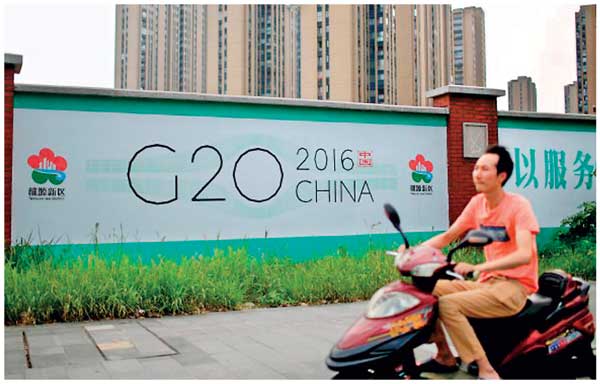07 Sep 2016 - {{hitsCtrl.values.hits}}

By CCC Economic Intelligence Unit
As heads of state and trade ministers of the world’s 20 largest economies gathered in Guangzhou, China, this week, one of the foremost items on their agenda was the worrying slowdown in global trade and tensions relating to trade protectionism and excess industrial capacity. Moreover, the summit revealed that elevated geopolitical risks and regional tensions could be a significant barrier in further progress on trade integration.
Slowing trade
When it was first formed in the wake of the financial crisis, the G20 were able to implement coordinated responses on fiscal and monetary policy, which helped shore up the global economy. Their hopes are that similar success can be achieved on the new agenda of slowing world trade.
According to the World Trade Organisation (WTO), trade growth this year will be just 2.8 percent, the same as last year. Already 2015 was one of the weakest in five years, with global merchandise trade at US $ 16.5 trillion, down 13 percent from US $ 19 trillion the previous year. Experts believe that it is unlikely that global trade growth returns to the 6-7 percent rates of before, any time soon.
Creeping protectionism
Protectionist measures have been rising at their fastest rate since the 2008 financial crisis and this appears to be having a dampening effect on global growth. According to the WTO, G20 members have introduced a total of 1,583 protectionist measures since 2008. Between mid-October 2015 and mid-May 2016 alone, G20 economies applied 145 new trade-restrictive measures, equating to an average of almost 21 new measures per month. G7 countries and Australia are mainly responsible for an unusually large set of protectionism implementations and the sectors affected as a result of these include basic metals and chemicals.
Interestingly, among the G20, the USA has demonstrated the highest number of protectionist measures since 2008, according to Global Trade Alert (GTA). GTA also reports a rise in protectionist measures against investment goods, which is having a negative impact on the foreign direct investment (FDI) flows. Forecasts are of large dips in FDI, with contractions of 10-15 percent, both in developed and developing economies.
Symptomatic of tensions between China and developed economies on imbalances in trade, antidumping measures (including tariffs) against Chinese exports by G20 members rose 47 percent last year from 2010, according to the WTO data. One-third of these measures were aimed at China’s steel shipments. China – which makes 50 percent of the world’s steel – is being singularly faulted for a huge overcapacity in the steel industry, affecting countries from Europe to India. Although China argues that the cause is more sluggish demand than over supply.
Jobs and trade
An important factor fuelling the rise of protectionist measures is the anti-trade and anti-globalization sentiments sweeping across the USA and Europe, evidenced by the campaign stances of both the US presidential candidates and by Brexit and the rise of nationalist parties across Europe. These sentiments are being driven by the purported links between rising unemployment in the developed world (and specifically the loss of middle class, blue collar jobs) and trade. However, as the WTO chief argued, this link is exaggerated and the challenge
lies elsewhere.
“When we talk about trade, most of the time, it’s making a relationship between trade and unemployment,” Roberto Azevedo said. “Trade is not the cause for unemployment. In fact, the biggest drivers for unemployment are innovation and increased productivity. It has nothing to do with trade.”
Recognising the need to boost the case for globalization and freer trade as a creator rather than destroyer of jobs, G20 leaders acknowledged that they need to communicate to the wider public more effectively “the benefits of trade and open markets”, together with implementing “appropriate domestic policies to ensure that benefits are widely distributed”, in the communiqué issued at the end of the summit this week.
Commitment to freer trade?
The communiqué at the end of the summit made clear statements on freeing up trade. It noted, “We reiterate our opposition to protectionism on trade and investment in all its forms. We extend our commitments to standstill and rollback of protectionist measures till the end of 2018 and reaffirm our determination to deliver on it.”
Yet, the statement contained little in terms of concrete steps. A further aggravation of protectionist measures that harm global trade – and indeed investment – flows, could trigger a ‘race to the bottom’. Actions by the largest 20 economies ultimately have a knock-on effect on trade-dependent countries like Sri Lanka.
(This weekly column is part of the ‘Trade Intelligence for the Private Sector’(TIPS) initiative of the Ceylon Chamber of Commerce, aimed at enhancing awareness on trade
policy issues among the Sri Lankan private sector)
25 Nov 2024 4 hours ago
25 Nov 2024 5 hours ago
25 Nov 2024 5 hours ago
25 Nov 2024 7 hours ago
25 Nov 2024 7 hours ago